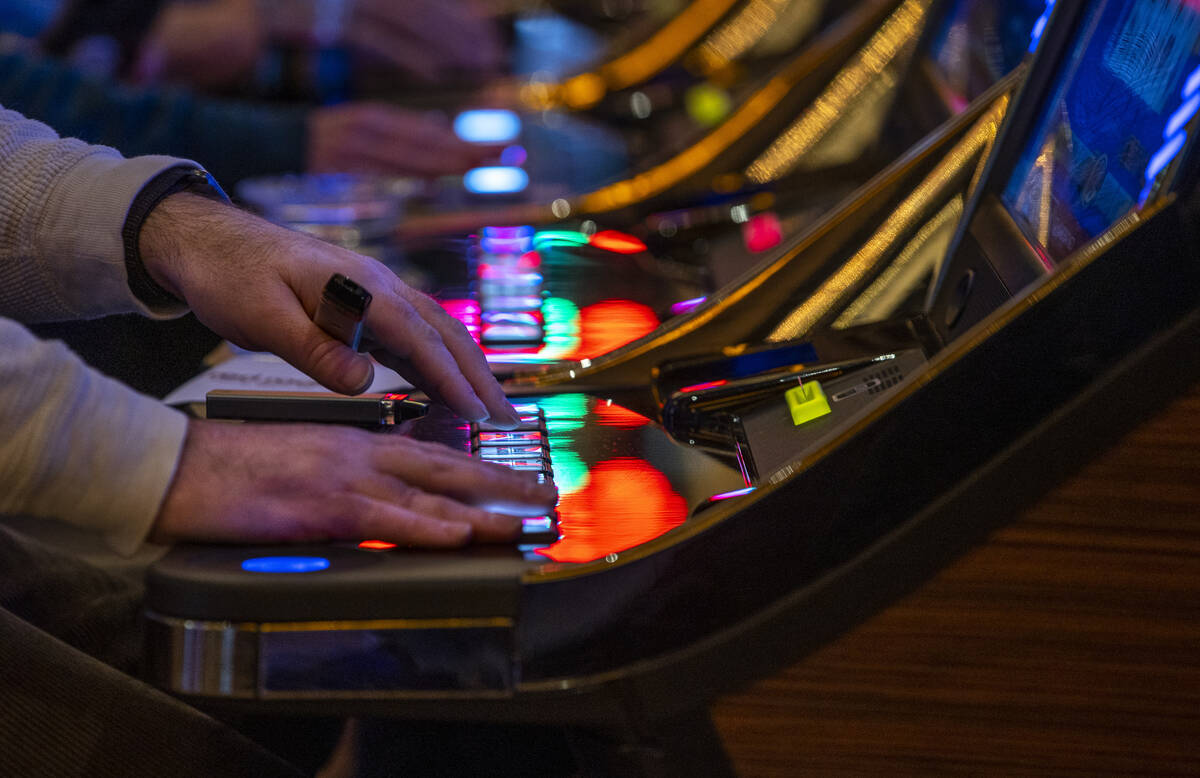Should trespassed gamblers be paid jackpots? Nevada regulators weigh in
The Nevada Gaming Control Board may draft a regulation that would address whether customers kicked out of a casino could collect winnings if they sneaked back in, played and won.
The issue involving trespassed players winning jackpots was fresh in board members’ minds Wednesday after they on Oct. 4 voted 2-1 to uphold paying gambler Rhon Wilson a $2,045.18 jackpot he had won at Casablanca hotel-casino in Mesquite. The casino disputed payment, citing that Wilson had been ordered out of the casino for theft and shouldn’t have been there.
Dick Tomasso, vice president of security and government affairs for Mesquite Gaming LLC, owner of the Casablanca, at the time told the board Wilson had been trespassed from the casino seven times after failing to pay for a drink. But he re-entered the casino, winning jackpots three times over several months.
Wynn executive weighs in
During a Wednesday hearing, Tomasso urged the body to change the policy of requiring payments to players that have been trespassed. He was joined in his testimony by Todd Fasulo, vice president of security, investigations and crisis management at Wynn Las Vegas. Other executives in similar roles for casino companies were also present.
Tomasso asked board members not to confuse the word patron with trespasser.
“They are not interchangeable. A patron is an invited guest. A trespasser is an uninvited guest. A trespasser is a lawbreaker. A trespasser is a banned individual. There’s a big difference, and that distinction goes to the heart of the legal obligation that a casino has to pay a patron his winnings.”
Fasulo said this problem is happening up and down the Strip.
Because trespassers are most often removed for minor offenses, law enforcement leaders don’t want to dedicate their resources to petty crime. What happens is that trespassers disregard judicial orders and re-enter casinos, and when they win jackpots, they know regulators will want them to be paid based on policies approved decades ago.
Board members asked if it should be the regulators’ responsibility to keep trespassed patrons out of their casinos. They said that downtown Las Vegas’ Circa resort checks the identification of all entering to make sure they’re 21 or older.
“If they want to expend the labor costs to put somebody at the minimal amount of doors that they have to check ID, that’s their prerogative,” Fasulo said. “I guess that’s the choice that they make. For me to do that at the Wynn, you’re talking at least 15 different doors that I’d have to do that. And the sheer volume of people coming through, there’s 20,000 to 30,000 people that come through our doors on a daily basis, depending on conventioneers or just local tourists or out of town tourists.”
Tomasso said checking everybody entering would be a logistical nightmare, even with expensive facial recognition technology available.
Clark County Assistant District Attorney Christopher Lalli testified that trespassing is a widespread problem that seems to be getting worse. He reviewed records from July and determined there were 87 trespass cases before Las Vegas Justice Court Judge Melissa Saragosa, who presides over a special resort corridor court. He said the typical defendant will plead guilty and be ordered to stay out of the casino for typically six months.
Assad wants change
Control Board member George Assad, the member who voted against approving the jackpot payment to Wilson and a retired Las Vegas Municipal Court judge, said a new policy would fix the problem.
“Some policies are good, and we should respect and honor them. Some policies are outdated,” Assad said. “This policy is certainly outdated. I don’t know who came up with it or what the rationale was for it, but it makes absolutely no sense at all.
“You can have somebody at every door, which would cost you a fortune. But that’s not practical. Why do we want to shift the burden of proof to the casinos when easily, easily we could solve that problem by creating a reg just like we have a statute that says if you’re under 21, you can’t gamble, period,” he said.
Board members are expected to review regulatory drafts at a later date.
Contact Richard N. Velotta at rvelotta@reviewjournal.com or 702-477-3893. Follow @RickVelotta on X.























